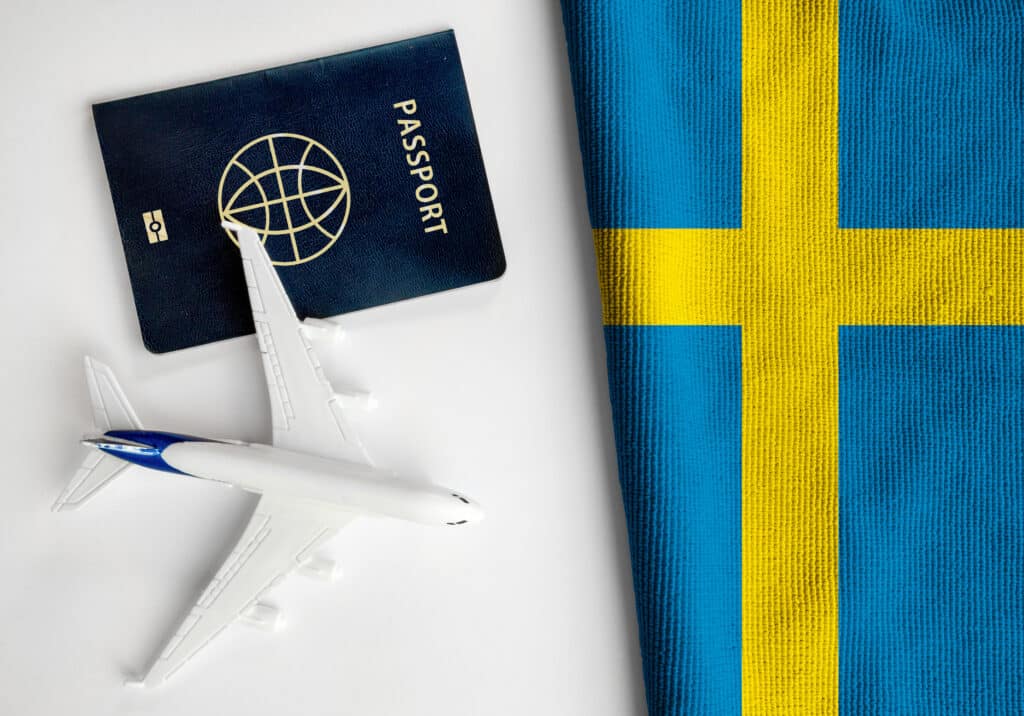Did you know GYH can help with your outbound immigration needs? We have a vast network of local counsel around the globe and offer consultations and representation for both global and U.S. immigration matters. Stay tuned for more blogs from our international local counsel network about immigration options in their home countries.
Swedish Citizenship: An Overview

By Guest Contributors, Cecilia Wachtmeister and Anna-Therese Melén at Wachtmeister Advokatbyrå AB.
Under Swedish law, a person can acquire Swedish citizenship through birth, adoption, legitimization (if under 18), or naturalization.
Citizenship by Birth
Swedish citizenship law primarily follows the principle of jus sanguinis, meaning citizenship is derived from a parent rather than place of birth (jus soli). Historically, Sweden’s nationality laws have evolved significantly. Before 1979, the Swedish Citizenship Act of 1950 distinguished between children born in and out of wedlock. A child born out of wedlock automatically received Swedish citizenship only if the mother was Swedish, whereas a child born to a married couple received Swedish citizenship if the father was Swedish. This changed on July 1, 1979, when the law was amended to grant Swedish citizenship to any child born to a Swedish mother, regardless of her marital status or the child’s place of birth. Further reforms on April 1, 2015, established that a child now automatically receives Swedish citizenship if at least one parent is Swedish, whether the mother or father, and regardless of where the child is born.
Dual Citizenship
Since July 1, 2001, Sweden has permitted dual citizenship. A Swedish citizen who acquires another nationality may retain their Swedish citizenship, provided the other country allows it. Similarly, a foreign national who becomes a Swedish citizen may retain their original citizenship if their home country permits dual nationality.
Loss of Citizenship at Age 22
Swedish citizenship cannot be revoked for individuals born in Sweden. However, individuals born abroad may automatically lose their Swedish citizenship upon turning 22 if they have never lived in Sweden and have not maintained significant ties to the country.
Authorities assess ties to Sweden based on the number and nature of visits to Sweden, ongoing contact with Swedish relatives, and the individual’s ability to speak Swedish.
Preventing Loss of Citizenship
To prevent the loss of Swedish citizenship at age 22, an individual can apply to retain their citizenship, but this must be done between the age of 18 and 22. If you have ever lived in Sweden or have regularly visited the country, an application may not be necessary. However, applying is recommended to express your desire to keep the Swedish citizenship and ensure clarity regarding your citizenship status. After turning 22, if there is uncertainty about whether Swedish citizenship was lost, it is possible to apply for a declaration of citizenship. Additionally, if it is unclear whether an individual was considered a Swedish citizen at birth, they may apply for a declaration of citizenship by birth. We can assist with these applications and provide guidance throughout the process.
Would you like assistance in securing or clarifying your Swedish citizenship?
Contact us today.
Wachtmeister Advokatbyrå is a law firm specializing in Swedish and international family and inheritance law. In addition, we undertake assignments that are closely related to these types of issues or where our expertise in these areas is beneficial to the client. What distinguishes our practice from many other law firms is that we specialize in a limited number of legal areas. We only work with the subject areas in which we are experts so that you as a client can feel confident that we will handle your case with the greatest experience and professionalism.

